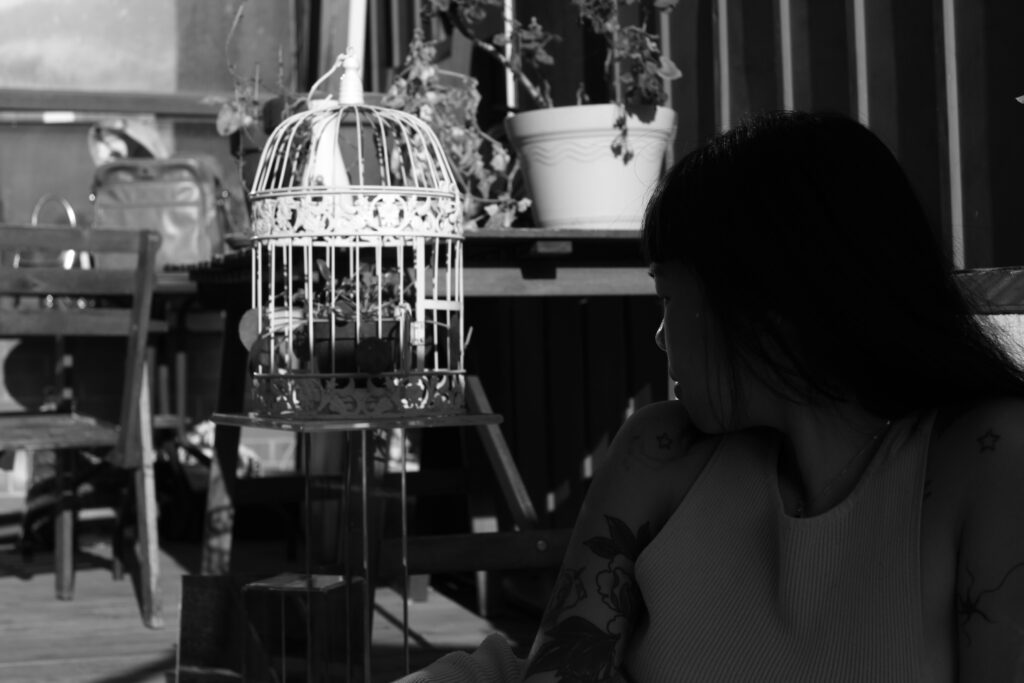The Dark Side of the Looking Glass – Part 2
Kiko - Conversations with Céleste
Pictures by Orion
Artistic direction by Orion and Céleste
Céleste: Which pronouns do you use?
Kiko: Honestly, I’m thinking about this. I feel like if I say she/they people will always use she instead of they. I’m gender neutral but call me whatever you want. I would prefer they.
Céleste: So, what is your job? Well, in this case what are your jobs?
Kiko: I’m a stripper. I also work for my university, but I’m quitting that job soon. I’m gonna start an internship with an artist center in January, I’m super excited. And, the residency at the Museum of Fine Arts. I have the feeling that all the efforts I put into my work are paying off.
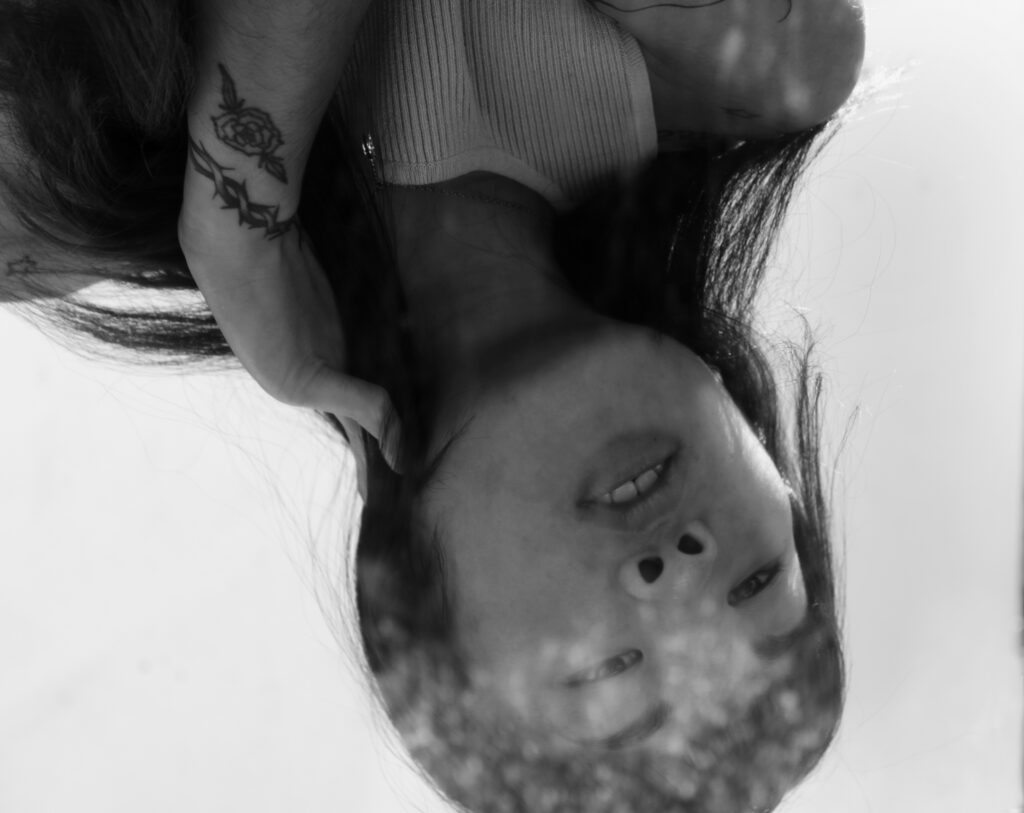
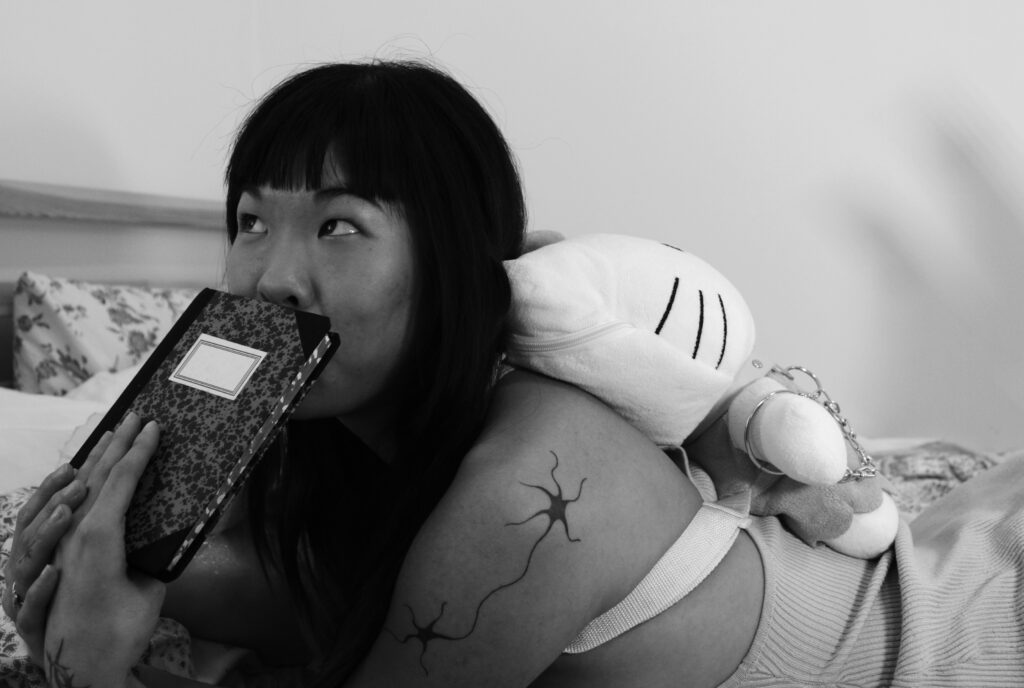
Céleste: I’m so happy for you! Next question.
Kiko: Oh wait, I’m not done! I’m also a musician, I do contracts for movies or small videos, audiovisual projects. I do concerts here and there.
Céleste: There you go, that’s what was missing! I felt like there was a big part missing. What’s your educational background?
Kiko: I immigrated here when I was 10 years old, and learned French in an integration program. Then, I was in an all-girls private secondary school, and it was very strict. I continued in college, also in a private school, so basically all my life I’ve been in private schools. Even in China, in elementary school, I went to a private school and there the educational system is very broken. Even in a private school that was supposed to be ethical, they would still physically punish kids that didn’t do their homework; something that is very illegal here. When I was in college, I was in art, literature and communication and jazz music. Now, I’m in University and I’m studying electro acoustic. I’m studying cinema also, but I don’t think I’ll pursue it because I want to focus on music. Do you want some tea?
Céleste: Yes, for sure.
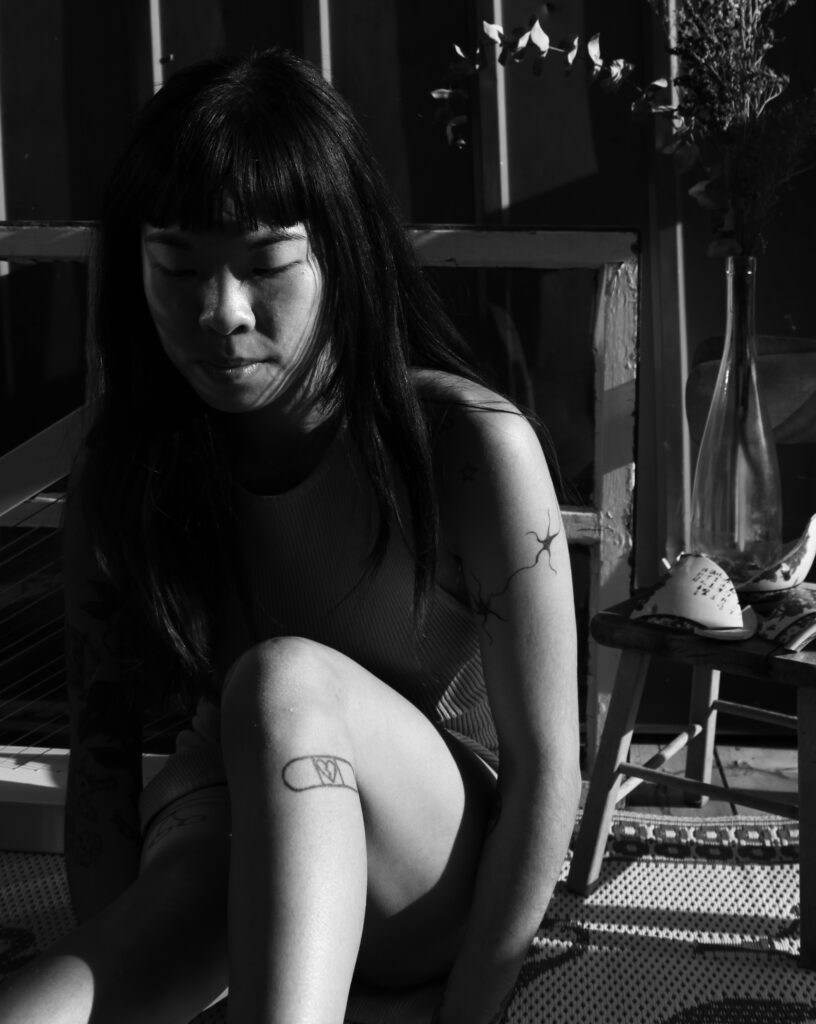
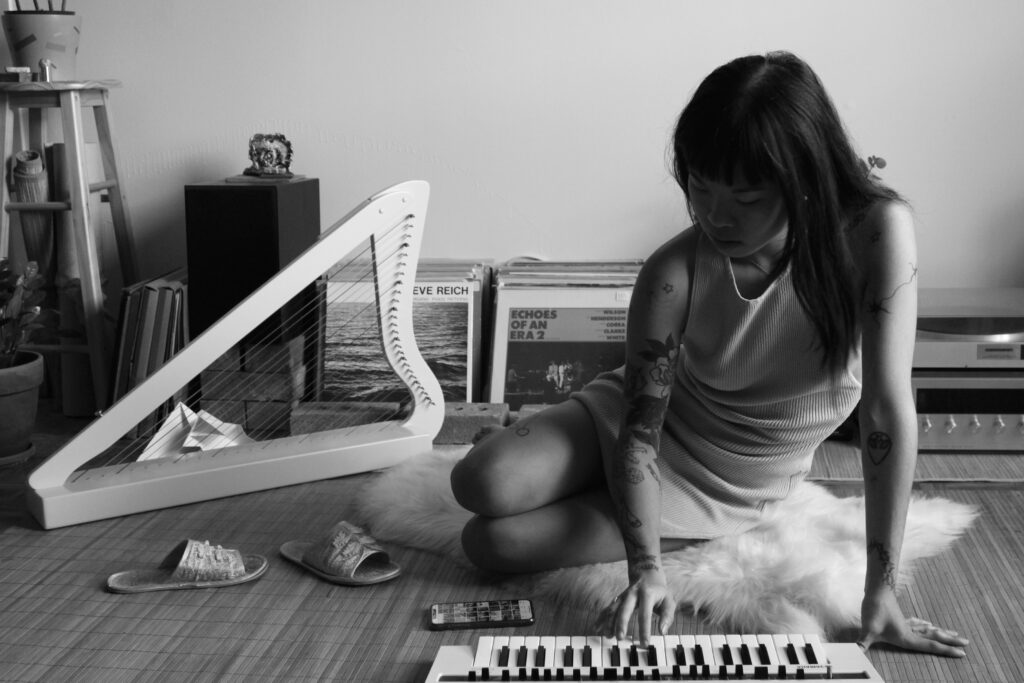
Céleste: What are your hobbies?
Kiko: I really enjoy chilling with friends, watching movies, listening to music obviously, thrifting. I have so many hobbies but with work I have less time to put into them. I also like to spend time alone, with myself, it’s different from being at work.
Céleste: What are your passions?
Kiko: Music and art, sound art, visual art, all types of art!
Céleste: What would the decriminalization of sex work change in your life?
Kiko: Honestly, I think it would change a lot of lives. I was thinking a lot about this recently and why are strip club managers so shitty? Well since there aren’t rules, it’s not really regulated, the people that make the rules, well it’s the managers. Generally, they aren’t the most empathetic people, and the rules change often. It’s an environment that can become hard to work in, because we have no protection or security towards our employment. What do you think?
Céleste: I agree with you and the decriminalization in general of sex work would make our work safer and we could be less scared of the police, pimps, clients, managers, big industries, etc. Ideally, we would have access to more resources to do our jobs without so much danger. Is there something you would like to say to people outside of the sex industry?
Kiko: I’m sure that it’s not the same perception for all types of sex work, but when it’s related to stripping, often people will think it’s easy money, and people who don’t do this kind of work will expect you to pay their meal, for example. I’m very generous in life and I like to share with my friends, but it’s not easy money; everything has a price. And if I want to treat myself, that’s my business, but they have no rights to my money. More and more, I find friends that are strippers and/or sex workers and I feel better understood. I believe that the exterior world should learn more about how it works. There is so much stigma attached to this kind of work that I don’t tell everyone where I work, but it is literally a job.
Céleste: Last question I have, why were you interested in doing this photoshoot?
Kiko: It interested me because I feel that not many people are informed about this world, and I think it’s important to demystify it to get a little more empathy from people who aren’t familiar with it. Also, I think that my thoughts can help, or not, and bring connections with people who are in the industry.
Céleste: Thanks Kiko!
